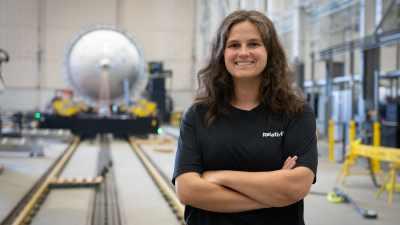Prof. Patrick Underhill discusses how experiences like cooking and hiking impact science and engineering research in the Faculty Spotlight talk on January 14, 2026. Research is often confined to silos based on properties like size, material, or application, which can limit innovation. But when we break down these barriers and explore unexpected connections, we can find inspiration to solve complex problems. This lecture is available at https://youtu.be/sqy-En4C5KM.
A team led by Rensselaer Polytechn
Prof. Helen Zha discusses a future where biological systems are harnessed to inspire, make, and dispose of the materials we use in our daily lives at the Faculty Spotlight talk on December 10, 2025. Nature provides many examples of materials that are exquisitely elegant in form and function. These materials can have high performance, be renewably made, and leave no lasting waste in our environment. Nature also provides bio-based tools for manufacturing these materials in an eco-friendly way.
Assistant Professor Prashun Gorai has received a two-year ACS Petroleum Research Fund (PRF) Doctoral New Investigator (DNI) grant from the American Chemical Society
CBE family members gathered to celebrate Prof. Joel Plawsky’s more than a decade of service as head, and to welcome the new leadership on November 20. 2025.







 Alhussein Abouzeid Named Head of RPI’s Department of Electrical, Computer, and Systems Engineering
Alhussein Abouzeid Named Head of RPI’s Department of Electrical, Computer, and Systems Engineering
 Rensselaer Polytechnic Institute Awarded $3.3 Million Grant to Improve mRNA Purification Technology
Rensselaer Polytechnic Institute Awarded $3.3 Million Grant to Improve mRNA Purification Technology
 RPI Faculty Among World’s Most-Cited Researchers
RPI Faculty Among World’s Most-Cited Researchers
 RPI and GlobalFoundries Partner on Semiconductor Research, Education, and Workforce Development Initiatives
RPI and GlobalFoundries Partner on Semiconductor Research, Education, and Workforce Development Initiatives
 RPI Alumna Clare Severance ’18 Honored in Society of Manufacturing Engineers 30 Under 30 List
RPI Alumna Clare Severance ’18 Honored in Society of Manufacturing Engineers 30 Under 30 List